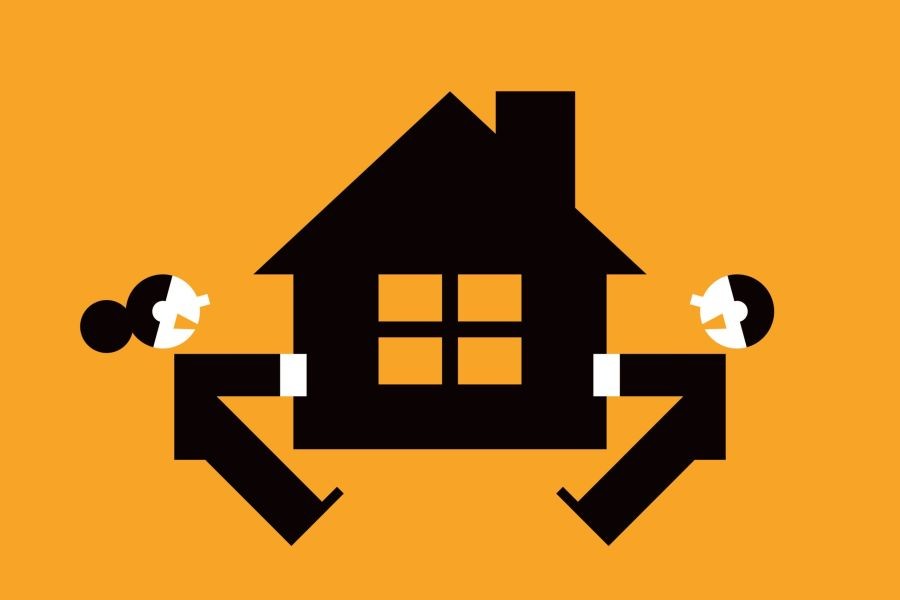In the world of real estate, flipping houses is often touted as a lucrative endeavor. But is this the case in New Zealand? While the allure of transforming a rundown property into a dream home and selling it for a profit is tempting, the reality is more complex. As New Zealand grapples with housing affordability issues, strict regulatory frameworks, and a volatile market, flipping houses isn't as straightforward—or profitable—as it might seem. This article delves into the intricacies of house flipping in New Zealand, examining the factors that can turn this potential goldmine into a financial sinkhole.
Understanding the New Zealand Real Estate Landscape
New Zealand's property market has seen significant fluctuations over the past decade. According to Stats NZ, house prices have surged by 27% since 2020, stoking concerns about affordability and housing supply. The government has responded with policies aimed at cooling the market, including restrictions on foreign buyers and increased taxes on investment properties. These measures aim to stabilize prices but also complicate the landscape for house flippers.
Pros and Cons of Flipping Houses in New Zealand
Pros:
- Potential for High Returns: Successful flips can yield significant profits, especially in high-demand areas.
- Creative Outlet: Flipping houses allows for creativity in design and renovation, providing a sense of personal fulfillment.
- Market Demand: In some regions, there is a strong demand for renovated properties, which can lead to quick sales.
Cons:
- High Entry Costs: Initial investment costs, including purchase prices and renovation expenses, can be prohibitive.
- Regulatory Hurdles: Strict building codes and compliance requirements can delay projects and increase costs.
- Market Volatility: The New Zealand housing market is unpredictable, with potential for sudden downturns.
Case Study: The Auckland Experience
Consider the case of a Wellington-based investor, Sarah, who ventured into the Auckland property market. In 2022, she purchased a dilapidated property with the intention of flipping it. Despite a well-researched renovation plan and a solid understanding of the market, Sarah faced unforeseen challenges.
Problem: The property required extensive structural repairs, more than initially anticipated. In addition, new council regulations delayed permits, adding months to the timeline.
Action: Sarah hired a project manager and a team of experienced contractors to expedite the renovation. She also engaged a real estate consultant to refine her sales strategy.
Result: After a year of hard work, the house was sold, but the profit margin was a modest 8% after accounting for all expenses.
Takeaway: Flipping houses in New Zealand requires thorough due diligence, an understanding of local regulations, and a readiness to adapt to market changes. For Sarah, the experience underscored the importance of flexibility and professional advice.
Myths and Misconceptions About House Flipping in NZ
Myth: "Flipping houses guarantees quick profits."
Reality: The reality is far from guaranteed. According to the Real Estate Institute of New Zealand, only 30% of house flips result in significant profit margins, with many investors breaking even or incurring losses.
Myth: "Any property can be flipped for a profit."
Reality: Location is crucial. Properties in declining areas or those requiring substantial structural work may not yield a profit, regardless of effort and investment.
Myth: "Renovation costs are predictable."
Reality: Costs can spiral due to unforeseen repairs, regulatory changes, and market conditions, impacting overall profitability.
Expert Opinion: Why It’s Not All Doom and Gloom
Despite the challenges, some experts believe that house flipping can still be a viable option in New Zealand with the right strategies. John Smith, a real estate analyst at the University of Auckland, suggests that focusing on sustainable renovation practices and targeting emerging suburbs can enhance profitability.
“Eco-friendly homes are increasingly in demand. By incorporating sustainability into renovations, flippers can appeal to a broader market and potentially command higher prices,” he explains. This approach not only meets consumer expectations but also aligns with New Zealand’s environmental goals.
Future Trends in the NZ Property Market
Looking ahead, the New Zealand property market is poised for further transformation. According to a 2025 report by Deloitte, the integration of technology in real estate transactions, such as AI-driven property valuation tools, will further shape investor strategies. Additionally, as the government continues to address housing shortages, new opportunities may arise in less saturated markets.
Prediction: By 2030, expect to see a shift towards regional development, with smaller cities experiencing growth as infrastructure improves. This could open new avenues for profitable property investments outside traditional urban centers.
Conclusion: Navigating the House Flipping Landscape
Flipping houses in New Zealand presents both opportunities and challenges. While the market offers potential for profit, it requires careful planning, a deep understanding of local conditions, and a willingness to adapt to regulatory changes. As the market continues to evolve, investors must remain vigilant and informed.
Final Takeaway: For those considering house flipping, the key is to approach it with a strategic mindset, leveraging expert advice and staying abreast of market trends. Have you ventured into house flipping? Share your experiences and insights in the comments below!
People Also Ask (FAQ)
Is flipping houses profitable in New Zealand?While there is potential for profit, market volatility and high renovation costs can reduce profitability. Success often depends on thorough research and strategic planning.
What are the risks of flipping houses?Risks include unexpected renovation costs, regulatory hurdles, and market downturns, which can all impact profitability.
How can I maximize profits when flipping a house?Focus on properties in high-demand areas, ensure efficient project management, and incorporate sustainable practices to appeal to modern buyers.
Related Search Queries
- House flipping strategies NZ
- Property investment tips New Zealand
- Real estate market trends NZ 2025
- Regulations for house flipping in NZ
- Sustainable renovation practices NZ
































KatieStock
9 months ago